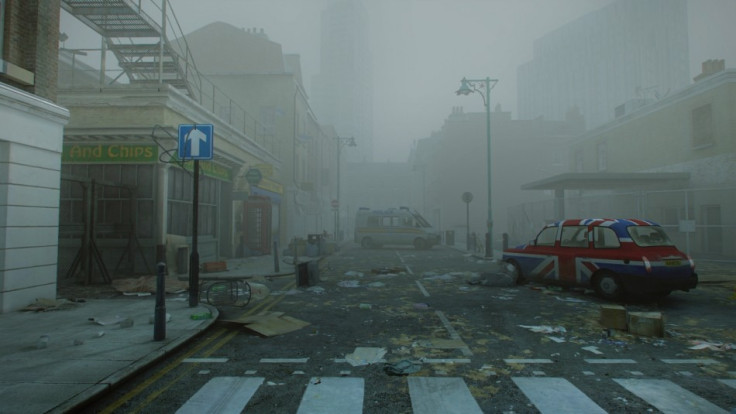Why Games Matter Blog - Do We Want British Games?

Do We Want British Games? - As the debate about tax credit continues, it's questionable whether "culturally British" games would really say the right about the UK industry
Supporters of the proposed tax credit for UK game developers have voiced concern that "culturally British" games are dying out. In UKIE's original tax proposal, in Tiga's letter to the European Commission and in a statement issued this morning by the EGDF, the lobbyists complain that rising development costs have forced British studios to Americanise or internationalise their games, that there's no way to make money anymore from targeting just indigenous markets.
If the tax breaks do go through (the EC investigation into whether they're actually required is still on-going) games will have to pass a cultural test before they're eligible. If your game isn't "British enough" - if it doesn't contain British characters, locations or other subject matter - it might not be qualified for the 20% tax reduction.
Not that everyone is suddenly, definitely going to start making Fawlty Towers: The Game: If your team is based in Britain, and employs mostly British staff, it may also qualify for the cuts, meaning British-based developers will be able to make what they like, but may still receive subsidies.
Nevertheless, Tiga, UKIE and EGDF have, throughout this debate, repeatedly bemoaned the lack of overtly British games. Each organisation has expressed hope that tax credit will free British developers to make "culturally British" products.
I'm not convinced that's a good idea. If making your game requires financial help from the government - if the only studios left standing are the ones with Americanised products - perhaps that suggests there simply isn't a market for British looking games. Perhaps no-one wants them.
I'm also not sure it's healthy to ignore foreign markets, not just in a financial sense, but culturally and socially speaking also. Videogames and to a broader extent technology are both global industries - people from around the world, and from different countries are, nowadays, connected to one other. To narrow UK developers' focus to making visibly British games would, I think, project a detrimental image of this country which is already being calcified by newspapers and the BBC, an image which we should, in fact, be striving to reinvent.
Isolationist
British media is largely isolationist: There are too many TV documentaries about the British coastline, or local produce, or World War 2 history. BBC One's The One Show is the prime example, which concentrates its output on lightweight topics with a British lilt - on Monday, 20 June, The One Show featured an item on the "death of the manned signal box."
The print media is also isolationist, exceptionalist. I'm thinking mostly of the Murdoch papers, which run stories about the British Armed Forces, local council red tape and the Royal Family. Again, the focus is on typically "British" things and again, like the BBC and like The One Show, there's a jingoistic undertone - there's the implication that British things are the best things. When it comes to projecting a simplified image of British exceptionalism, The Sun has dedicated an entire section of its online paper to the armed forces. The publication insists on using the capitalised "Our Boys" to refer to British soldiers.
UK print media and television imply British people are ignorant. They suggest we're a population only concerned with things that affect us, that are related, directly, to us. And that isn't the mindset of a 21st century country.
As I said, we're connected now. The fact I can speak to my friend in the US, or my friend in Germany, or my friend in Australia just as easily as I can speak to my friend next door, tells me there's really no excuse to be only concerned with myself anymore. Increasingly, the barriers between different people in different countries are disappearing, and the media has a responsibility to reflect the zeitgeist - it shouldn't choose instead to project a 1950s portrait of Britain.

This is why I feel uncomfortable with "culturally British" games. I think they'd continue to project this insular, pompous and boorish image of British people that has been carried for so long by television and writing. And especially considering the truly global nature of games now, where online multiplayer is king, I think it would be reductive - I think it would make Britain look out of step with the rest of the industry.
What a British game is
I'm also not sure what a British game looks like. Is it quirky? Is it humorous? Is it twee? Is it basically Hitchhiker's Guide for the Amiga, but with graphics now? Because if it is, I don't want it. Again, it's going to propagate the myth that the British are all genteel, witty, quasi-racists, and I'd rather just play Grand Theft Auto, a financially viable British product that engages audiences in other countries.
Or maybe a British game will be something more - maybe there are developers out there with great ideas for games, games that reflect the real state of the nation.
But I worry British games will go the way of kitchen sink film dramas, providing a narrow view of a mythical Britain, a view which gives the wrong idea to viewers both foreign and domestic.
© Copyright IBTimes 2025. All rights reserved.






















